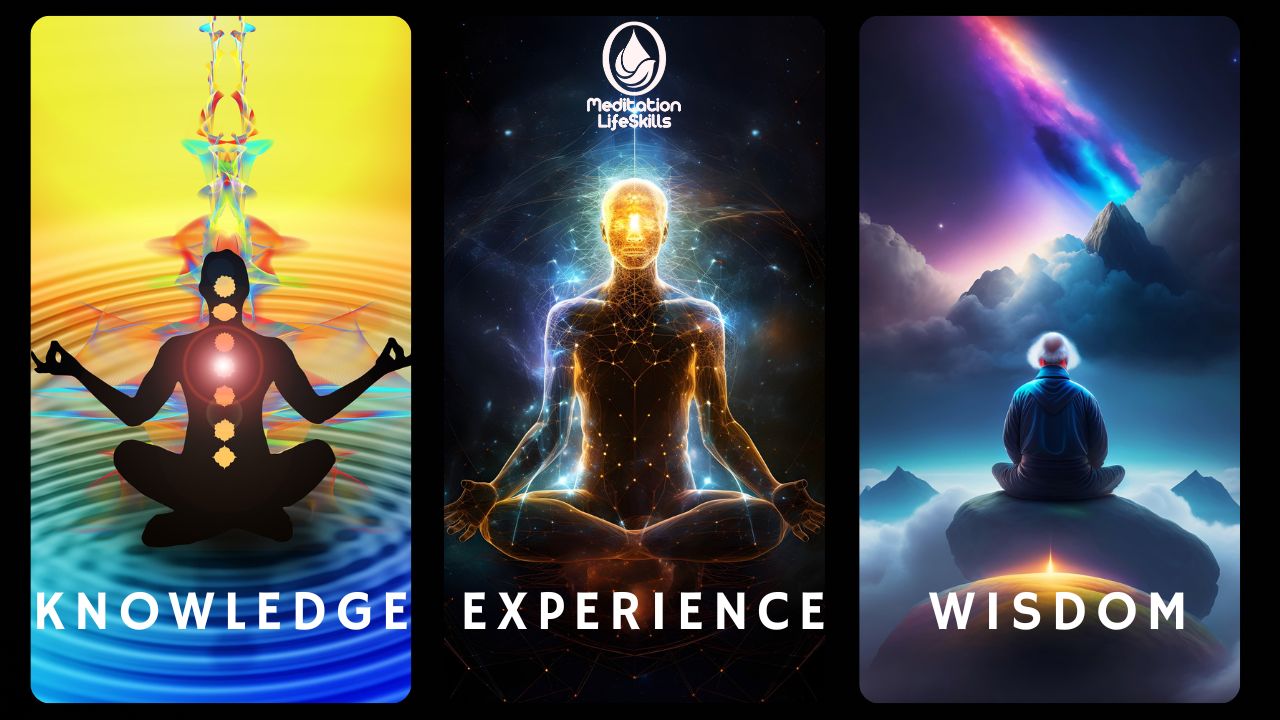With so many demands on our time and attention, meditation can be a powerful tool to help us relax, focus, and find balance in our lives. But if you're new to meditation, it can be hard to know where to start.
GET STARTED TODAY WITHOUT ANY RISK!
Get 7 Days of Unlimited Access Right Now
for Free When You Download Our App!
A life of transformation begins with action. There are seven stages of meditation instruction on a single platform. Live monthly Zoom coaching and training sessions.
Get unlimited free access to the Meditation Life Skills app for 7 days by downloading it now! Visit MeditationLifeSkills.com.
In today's fast-paced world, we all need a little bit of peace and quiet.
That's why we've put together this guide to help you get started with the basics of meditating for beginners. In just 5 simple steps, you'll be able to start meditating and enjoying the many benefits it has to offer.
Whether you're looking to reduce stress, improve your mental clarity, or simply find a sense of calm in your daily life. Meditation can be a powerful tool to help you achieve your goals. So let's dive in and learn how to start meditating today!
What Is Meditation?
Meditation is the practice of focusing your mind on a particular object, thought, or activity to achieve a state of relaxation and mental clarity. There are many different types of meditation, each with its own unique approach and benefits. Some types of meditation involve focusing on your breath, while others involve visualizing a peaceful scene or repeating a mantra.
The goal of meditation is to quiet your mind and enter a state of deep relaxation. This can help you manage stress, improve your mental clarity, and find a sense of inner peace. While meditation can be challenging at first, with practice, it becomes easier to achieve a meditative state and enjoy its many benefits.
The Benefits Of Meditation
Meditation has numerous benefits for both your mental and physical health.
Some of the key benefits of meditation include:
- Reduced stress and anxiety
- Improved mental clarity and focus
- Increased sense of well-being
- Lowered blood pressure
- Improved sleep quality
- Boosted immune system
- Increased self-awareness
- Improved emotional regulation
These benefits have been well-documented in scientific studies, and many people have experienced these benefits firsthand through their meditation practice.
How To Prepare For Meditation
Before you begin meditating, there are a few things you should do to prepare yourself. First, find a quiet and comfortable place where you won't be disturbed. This could be a spare room in your house, a park, or even your car.
Next, choose a time of day that works for you. Some people prefer to meditate first thing in the morning, while others find it helpful to meditate in the evening before bed. Experiment with different times of day to find what works best for you.
Finally, dress comfortably and eliminate any distractions. Turn off your phone and any other electronic devices, and let your family or roommates know that you'll be meditating so they won't disturb you.
5 Simple Steps To Start Meditating For Beginners
Now that you're ready to start meditating, here are five simple steps to help you get started:
1. Find a comfortable position: Sit in a comfortable position with your back straight and your feet firmly planted on the ground. You can sit on a cushion or a chair, or even lie down if that's more comfortable for you.
2. Focus on your breath: Close your eyes and focus on your breath. Take deep breaths in through your nose and out through your mouth. As you breathe, try to clear your mind of any thoughts or distractions.
3. Use a mantra: If you find it difficult to quiet your mind, you can use a mantra to help you focus. A mantra is a word or phrase that you repeat to yourself silently. Some popular mantras include "om" or "peace."
4. Set a timer: Set a timer for five or ten minutes to start. As you become more comfortable with meditation, you can gradually increase the length of your sessions.
5. Practice regularly: Make meditation a daily habit. Aim to meditate for at least five minutes every day, and gradually increase the length of your sessions as you become more comfortable with the practice.
Tips For A Successful Daily Meditation Practice
Here are some tips to help you get the most out of your meditation practice:
Be patient: Meditation takes practice, so be patient with yourself. Don't get discouraged if you find it difficult to quiet your mind at first.
Be consistent: Make meditation a daily habit. Consistency is key to getting the most out of your practice.
Find a community: Join a meditation group or find a friend to meditate with. Having a support system can help you stay motivated and committed to your practice.
Be open-minded: There are many different types of meditation, so be open to trying new things and exploring different techniques.
Practice gratitude: Take a moment at the end of your meditation practice to express gratitude for the things in your life that you are thankful for.
Common Obstacles To Meditation And How To Overcome Them
As with any new habit, there may be obstacles that arise as you begin your meditation practice. Here are some common obstacles and how to overcome them:
Restlessness: If you find yourself feeling restless or agitated during your meditation practice, try practicing a guided meditation or focusing on your breath.
Distractions: If you find yourself getting distracted by external noises or thoughts, try using earplugs or a white noise machine to block out distractions.
Impatience: If you find yourself becoming impatient or frustrated with your meditation practice, remind yourself that meditation takes practice and that you are making progress.
Different Types Of Meditation
There are many different types of meditation, each with its own unique approach and benefits.
Here are a few of the most popular types of meditation:
Mindfulness meditation: This type of meditation involves focusing on the present moment and cultivating a non-judgmental awareness of your thoughts and feelings.
Loving-kindness meditation: This type of meditation involves cultivating feelings of love, kindness, and compassion towards yourself and others.
Transcendental meditation: This type of meditation involves using a mantra to help you achieve a deep state of relaxation and mental clarity.
Yoga meditation: This type of meditation involves combining yoga postures with deep breathing and meditation to achieve a state of physical and mental relaxation.
Resources For Continued Learning And Growth
If you're interested in learning more about meditation, there are many resources available to you. Here are a few to get you started:
Books: There are many books on meditation, ranging from beginner's guides to more advanced texts. Some popular titles include "The Power of Now" by Eckhart Tolle and "Wherever You Go, There You Are" by Jon Kabat-Zinn.
Apps: There are many meditation apps available for smartphones and tablets, including MeditationLifeSkills.com.
Classes: Many yoga studios and meditation centers offer classes and workshops on meditation. Check your local listings to find one near you.
Online resources: There are many websites and online communities dedicated to meditation, including Mindful.org and Meditation Oasis.
Conclusion
Meditation is a powerful tool that can help you manage stress, improve your mental clarity, and find a sense of inner peace. By following these five simple steps, you can start meditating today and begin experiencing the many benefits it has to offer.
Remember to be patient, consistent, and open-minded as you begin your meditation practice, and don't hesitate to seek out resources and support as you continue to grow and learn. You got this!















